The Nocturnal Journal
Tracking Down Sleep
The nocturnal journal is a “diary for the events of the night” in which you record the quality of your sleep. Each morning after you wake up, you will note down how long you slept, what time you went to bed, how often you woke up during the night, your feelings, your state of mind, and others.
The basic idea behind a nocturnal journal is first to get a good overview of your current state of sleep and second, to be able to see which exercises and activities during the day affect your sleep in which way.
You also briefly note down any dreams from the night, because some people suffer from the impression that they have been awake all night even though objectively speaking they show a normal sleep pattern, a condition called Paradoxical Insomnia. A dream, on the other hand, is an indication that you have spent a good part of the night in a deep sleep state. And this revelation can have a very positive effect on the psyche.
How to Keep a Nocturnal Journal 📕
Write down the following about your sleep:
- Time you went to bed
- Time you woke up
- How many hours you slept in total
- Your process of falling asleep
- Any phases of sleep you were aware of (e.g. hypnagogic state, dreams, hypnopompia)
- Any circumstances during the day that may have affected your sleep (e.g. physical exercise, alcohol, caffeine, arguments, stress, relaxation exercise, meditation, rituals, morning light, etc.)
- How you feel when you wake up
- How the night went overall
Write down the following about your dreams:
- All dreams, especially nightmares, you can remember (short and sweet is enough)
- The main themes and emotional mood of the dreams
- How these dreams feel to you when you wake up
Why Write Down Dreams?
Recording your dreams has the following positive effects on your psyche:
If you can’t remember your dreams, the following affirmation will help:
“Tonight I remember my dreams,
I have excellent dream recall.”
As you fall asleep being half awake half asleep, repeat this sentence in your mind for a few minutes. Then let go of the affirmation and surrender to sleep fully.
With the help of this affirmation, most people can recall at least parts of their dreams without much effort just after a few nights, even if they have not remembered a single dream for years.
The Significance of the Nocturnal Journal 📕
By keeping a nocturnal journal and with each new entry, you are confirming to yourself that you value your sleep and your dreams. Forming this new habit creates a fascinating feedback loop: your conscious mind becomes more aware of your sleep – while your unconscious mind begins to present you with more memorable dreams in return. Your dreams become more exciting, more interesting, more profound – as you have begun to actively listen to them.
For many people, the practice of keeping a nocturnal journal combined with the intention to notice and remember sleep cycles and dreams more clearly, will lead to a heightened awareness after just a few weeks.
Example For A Nocturnal Journal Entry 📖
11th/12th June
I went to bed at 11pm, but stayed on TikTok for another 45 mins. Switched off light at 11.45pm.
After that, it felt like an eternity before I could fall asleep (maybe because of all the doomscrolling on TikTok?). However, as I was falling asleep, I made a firm resolution to remember my dreams.
A few hours later I woke up again to use the loo. I remembered a long dream where I was at work, but the office looked more like a swimming pool. My boss was there too. He reminded me a lot of my father. My workload was heavy and all documents threatened to drown in water. The whole situation felt quite stressful, but my boss encouraged me.
Afterwards, I had trouble falling asleep and felt wide awake. I read a book and tried the 4-7-8 breathing exercise. Eventually I fell asleep again.
My alarm went off at 7am and I immediately hit the snooze button. At 7.30 my alarm went off a second time. I know I had another dream, but I can’t remember it.
After waking up I felt pretty good, much better than yesterday.
Sleep Overall:
- about 6 hours
Influences Before Bedtime:
- Before going to sleep, I was worrying that I wasn’t getting enough sleep. To distract myself I scrolled on TikTok. But after that I couldn’t fall asleep for ages.
Influences During the Day:
- Been pretty stressed at work
- Did 20 min of breathing exercises during the day
- A few days ago I read about the benefits of the hypnopompic state. So after hitting the snooze button, I tried to rest in that twilight state.

 z z Z
z z Z